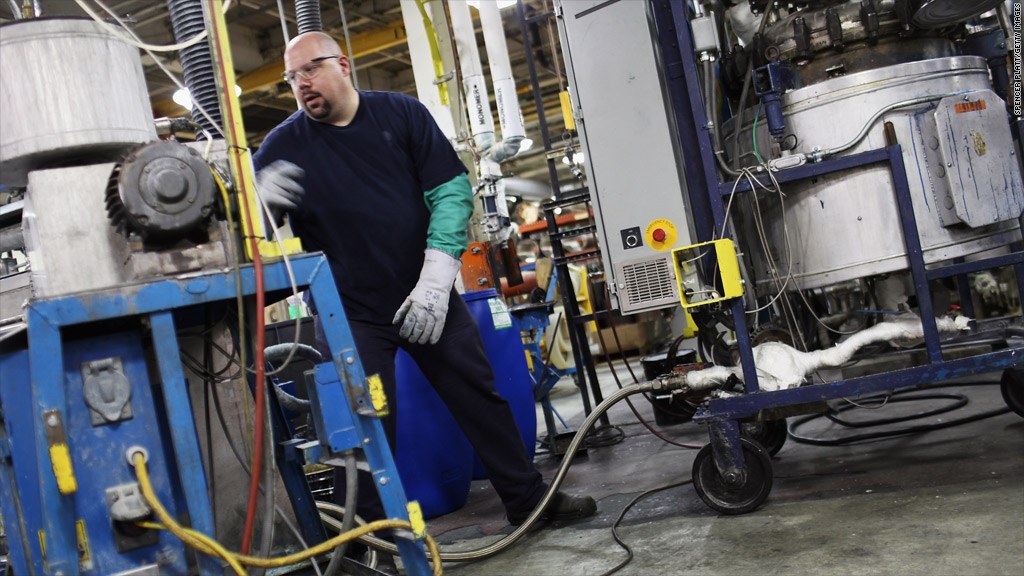
Outsourcing has become a dirty word in this election cycle. But most economists say sending jobs overseas isn't necessarily a bad thing.
The Obama Administration has slammed Romney for outsourcing American jobs while he headed Bain Capital, and Republicans have fired back, accusing President Obama's stimulus program of outsourcing energy jobs.
Yet most economists say criticizing the practice is absurd, because outsourcing ultimately does more good than harm.
"When jobs move from a factory in the South to one in Guatemala or China, it certainly has a negative impact on that community in the short run," said Jay Bryson, a global economist at Wells Fargo. "But in the long run it makes things more efficient."
Related: Manufacturing jobs boom is for real
Cheaper prices for consumer goods are often the first thing cited by defenders of outsourcing. Indeed, many items such as clothing, toys and electronics are getting cheaper, even without adjusting for inflation.
But the efficiencies extend beyond the cash register.
Companies can use the cost savings to staff up in other parts of their business, said Steven Leslie, a financial services analyst at the Economist Intelligence Group.
For example, if Apple (AAPL) can knock, say, $100 off the cost of producing the iPhone by making it in China as opposed to the United States, the company is then apt to spend that $100 in hiring people in other parts of its businesses -- such as sales, marketing or design.
A forthcoming paper in the American Economic Review looked at 57 American industries from 2000 to 2007. The study found that even though some people lost jobs due to outsourcing, the greater efficiencies the industries realized allowed them to hire even more people in the United States than were laid off.
"People tend to count the losses, but they don't count the gains," said Leslie. "When we outsource manufacturing, there are a lot of other people who are helped."
Those helped obviously include the workers in foreign countries who get the manufacturing jobs. They can then enter the developing middle class, which in turn increases demand for goods produced in the United States.
"Outsourcing is a two way street," said Douglas Irwin, an economics professor at Dartmouth College. "Other countries are outsourcing to us all the time."
Related: Why wages aren't rising
Of course, not everyone agrees with the conventional thinking.
Businesses might not necessarily use their added profits to hire, according to Alan Tonelson, a research fellow at the U.S. Business and Industry Council, which represents smaller and mid-size manufacturers.
Tonelson pointed to another study by the Nobel-winning economist Michael Spence that said from 1990 to 2008, companies in sectors most affected by international trade -- including manufacturing -- were responsible for just 2% of the 27 million new jobs the economy added. Tonelson said that implies that they've outsourced far more jobs than they've created.
He said losing manufacturing jobs is particularly detrimental to the economy because the manufacturing sector accounts for 70% of U.S. spending on research and development. It's also the leader in pushing productivity advances and has a big "job multiplier" -- meaning that for every manufacturing job there are several more required to extract the raw material, move the product, etc.
Tonelson scoffed at the lower prices argument, saying it "doesn't really matter if you don't have a job to begin with."
He also disputed the notion that companies might spend savings from outsourcing on hiring other, non-manufacturing employees.
"They could pay dividends or give themselves raises, I don't really know what they do with it," he said. "That's part of the problem, we don't a have the data. It's held by the offshoring companies themselves."



